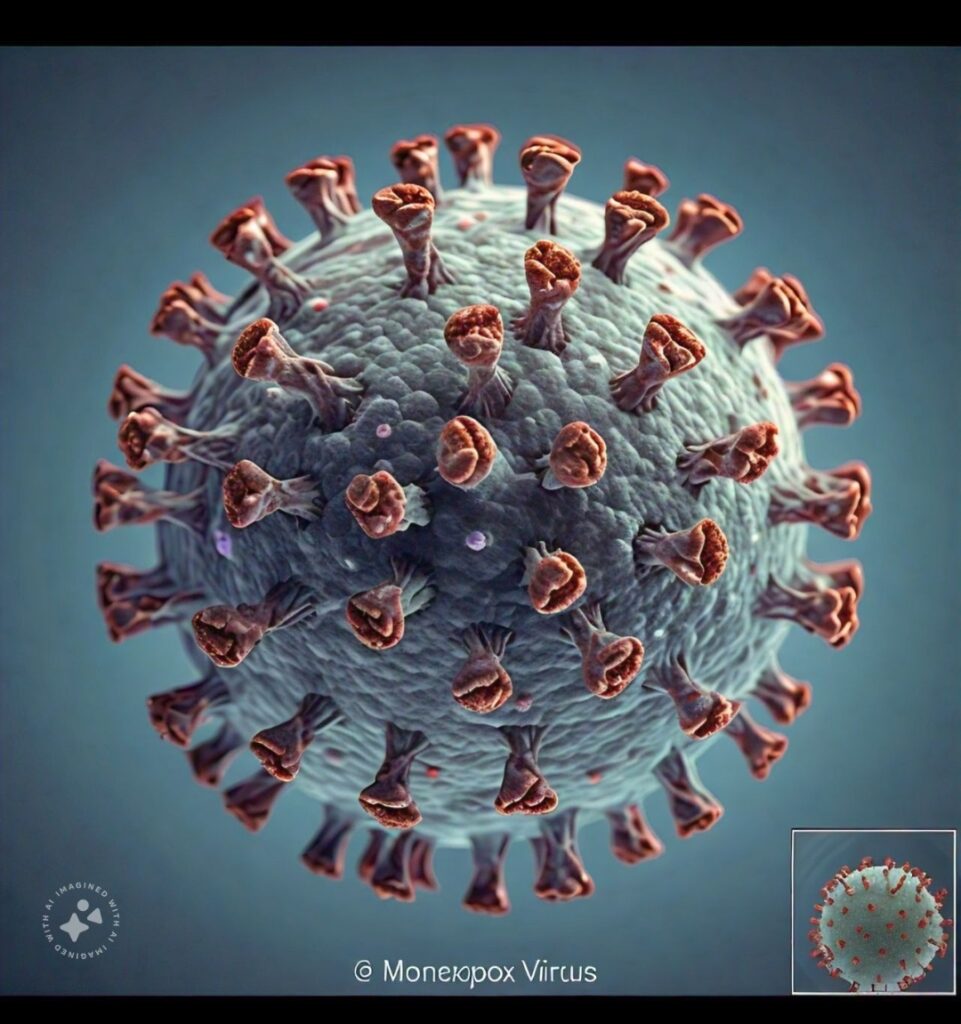Monkeypox is a rare and infectious disease caused by the monkeypox virus, which belongs to the Orthopoxvirus genus, which includes viruses like smallpox, cowpox, and camelpox.Here are some key facts about monkeypox:_Transmission:_– Direct contact with infected animals (rodents, primates)
– Human-to-human transmission through:
– Respiratory droplets
– Contact with bodily fluids (blood, saliva, etc.)
– Contaminated surfaces or objects_Symptoms:_– Fever
– Headache
– Muscle aches
– Swollen lymph nodes
– Rash or blisters on the skin (often starting on the face, hands, or feet)_Incubation period:_– Typically 10-14 days, but can range from 5-21 days_Duration of illness:_– Usually 2-4 weeks_Severe cases:_– Can lead to complications like pneumonia, encephalitis, or sepsis
– Higher risk for immunocompromised individuals, children, and pregnant women_Prevention:_– Avoid contact with infected animals or people
– Practice good hygiene (handwashing, disinfection)
– Wear protective gear (masks, gloves) when handling potentially contaminated materials_Treatment:_– No specific treatment, but smallpox vaccination may provide some protection
– Supportive care (fluids, rest, pain management)_Outbreaks:_– First identified in 1958 in the Democratic Republic of Congo
– Recent outbreaks in Africa, the US, and Europe (2022)Stay informed, and consult credible sources like the World Health Organization (WHO) or the Centers for Disease Control and Prevention (CDC) for updates on monkeypox.Threats related to monkeypox include:1. *Global spread*: Monkeypox can spread to new areas through human-to-human transmission, potentially leading to a pandemic.
2. *Severe cases*: Monkeypox can cause severe illness, especially in immunocompromised individuals, children, and pregnant women.
3. *Mortality*: Monkeypox has a mortality rate of around 1-10%, depending on the strain and population affected.
4. *Transmission risks*: Monkeypox can be transmitted through various routes, including respiratory droplets, contact with bodily fluids, and contaminated surfaces.
5. *Vaccine limitations*: While smallpox vaccination provides some protection, its effectiveness against monkeypox is not fully understood, and new vaccines are being developed.
6. *Animal reservoir*: Monkeypox can persist in animal populations, making it challenging to control outbreaks.
7. *Public health concerns*: Monkeypox outbreaks can strain public health resources, impact economies, and disrupt communities.
8. *Stigma and misinformation*: Monkeypox may be stigmatized or misunderstood, leading to unnecessary fear, discrimination, or delayed treatment.
9. *Lack of preparedness*: Insufficient public health infrastructure, contact tracing, and testing capacity can hinder response efforts.
10. *Potential for mutation*: The monkeypox virus could mutate, leading to increased transmissibility or severity.It’s essential to stay informed and follow credible sources for updates on monkeypox and public health guidance.
